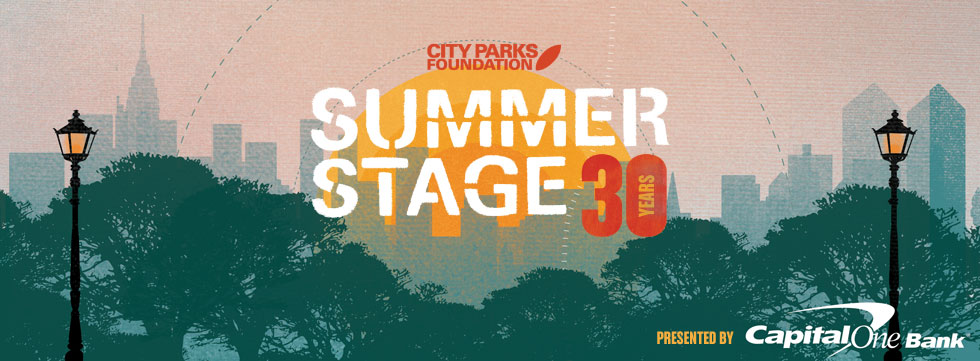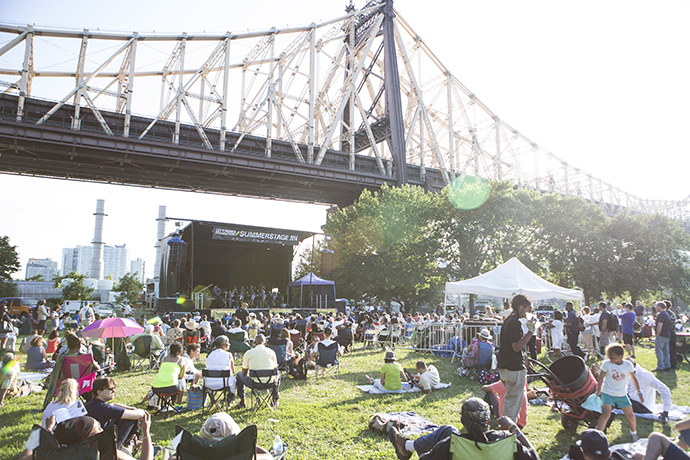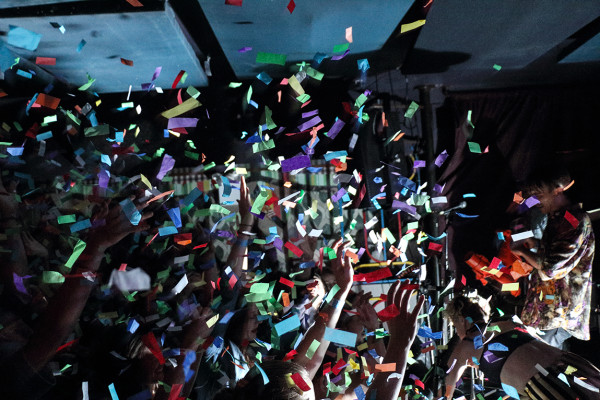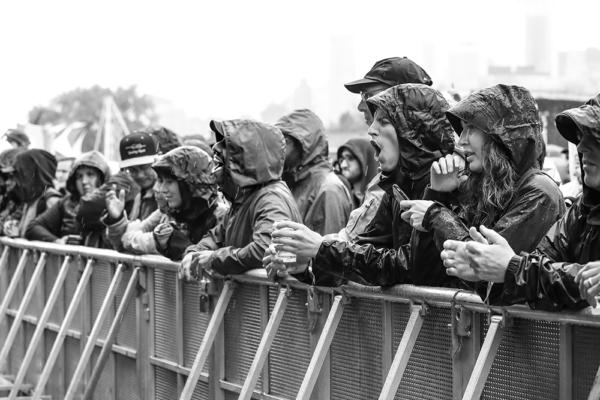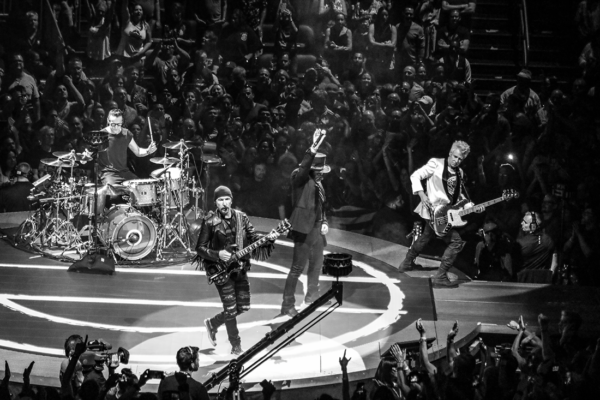It’s beginning to feel a lot like summertime in New York and few things are as seasonally fulfilling as listening to music outdoors in Central Park. As of this month, the revered Summerstage festival is celebrating it’s 30th year as a free platform for art and live music, and if it wasn’t for the devoted concertgoers and those who tirelessly work to curate it, this priceless event would simply not be possible. In anticipation of the months to come, we caught up with the festival’s Artistic Director, Erika Elliot on the value of diversity and the promising future of Summerstage.
How did the festival get started?
SummerStage was founded in 1986 as a way to “take-back” the public space in and around the bandshell in Central Park for positive activity. Now 30 years later, the festival continues to use free performing arts as a way to revitalize and activate parks and public spaces. SummerStage has become a beloved NYC institution, bringing music from around the world, and this great City to people for free, and not just in Central Park, but in all 5 boroughs.
What was the biggest development with Summerstage for the 30th Anniversary this year? Is there anything specific that you’re most proud of or excited about?
I’m really excited about the continued expansion in the number of shows we are presenting around the City in neighborhood parks. The addition of Flushing Meadows-Corona Park with a show by Charles Bradley is huge. Flushing is one of the most diverse communities in the City, and the park has huge potential. The expanded Film and music programs, including a screening of Time is illmatic in Queensbridge is just another way we are presenting across disciplines in a really relevant way for that neighborhood.
What drew you most to Summerstage when you accepted the position as Art Director?
The opportunity to present arts for free in New York is a dream position. Having primarily been in the “for-profit” music industry prior, I was really excited about being able to curate creatively, and book relevant, quality programs for New Yorkers in their parks. I love being able to provide a platform for artists from this city to perform in neighborhoods they care about. What is equally fulfilling is bringing artists from around the world to SummerStage to celebrate the cultural diversity that makes this city great. There is nothing more powerful than music and the arts to connect people across cultures, generations, and locations.
How do you go about selecting artists for Summerstage?
I have been working in the music industry for 20+ years, and have honed my skill as a curator. Aside from that I have relationships and trusted colleagues from around the world that I lean on when considering or looking for new ideas, or talent. I also go out 3-5 times a week, and travel around the world sourcing talent and seeing and hearing new music and artists. The combination and the prestige of the festival are how is all comes together.
What would you say are some of the most unique aspects of Summerstage?
Our location and diversity is unparalleled. We are in all 5 boroughs, in sixteen parks! Our programs cover everything from Circus to Opera, Hip-Hop to Yiddish Cantorial, Indie Rock to African Dance, and all in public spaces for free. There is really something for everyone.
How would you describe the crowd/attendees that Summerstage appeals most to?
SummerStage is for everyone, and our audience reflects that. I don’t think it would be accurate to say we appeal to a specific “crowd.” We really aim to be as diverse as the city itself. So if you are in Brownsville at SummerStage on a Wednesday, and Lower East Side on a Saturday, the audience is as varied as the people that make up New York.
In what ways would you say Summerstage has diversified itself in terms of music genres?
I think our line-up of music is as diverse as you will find in the city and arguably the world. I am particularly interested in contemporary music from around the world, so that the festival is representing the current music from any given country. That could be rock music out of Northern Brasil, or house music out of South Africa, or artists on the verge here in the US.
In what ways has Summerstage raised the bar for other festivals?
I think history speaks for itself, and longevity. There are very few festivals in the US who have been able not only survive, but grow over 30 years, that is a feat to be proud of in and of itself. Add to that the massive number of US debuts, our proven record of forecasting future stars, plus being a longstanding platform for new music and genres typically under represented in festivals, all contributes to something truly New York, and distinctly SummerStage.
Who would you love to have perform at Summerstage in the future?
Smokey Robinson, the return of David Bryne, David Bowie, Grace Jones, and the next big thing (before they become the next big thing).
What are some memorable moments for you in past years?
As far as forecasting breakout acts, I’m super proud to have had Feist, Vampire Weekend, MIA, Alabama Shakes, Seu Jorge, Janelle Monae, and The xx just to name a few before they were big
A few of my favorite all time shows include a co-bill show with Afrika Bambaataa and Seun Kuti, and bringing Ledisi and Esperanza Spaulding together to meet and perform for the first time.
For the full lineup visit here.
Article: Lea Weatherby

